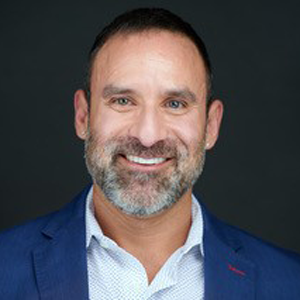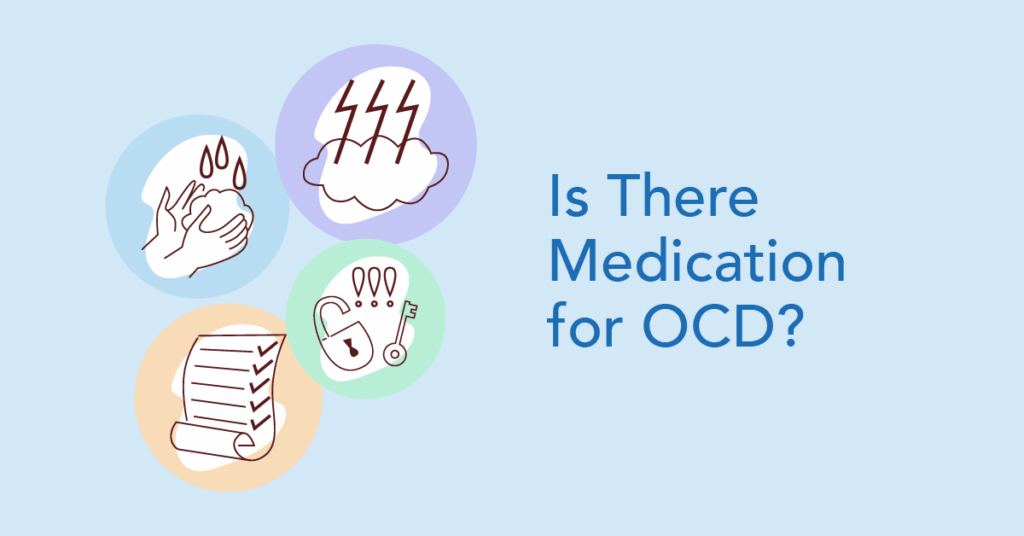Yes—OCD can be treated with medication:
SSRIs (like fluoxetine, fluvoxamine) are first-line
Often used alongside CBT
May take 8–12 weeks to see full effect
Obsessive-compulsive disorder is a chronic mental health condition in which the individual exhibits recurring, unwanted thoughts (obsessions) and repetitive behaviors (compulsions). While therapy — especially exposure and response prevention — is considered the gold-standard treatment, medication for OCD can be life-changing for many people, especially when used alongside therapy.
If you or someone you care about is living with OCD, it’s important to know that effective treatments exist and you’re not alone.
What Is OCD?
OCD is a mental health disorder affecting approximately 2.3% of American adults at some point in their lives, according to the National Institute of Mental Health. It involves:
- Obsessions. Unwanted, intrusive thoughts, urges or images that cause distress or anxiety
- Compulsions. Behaviors or mental acts performed to relieve the anxiety caused by obsessions (e.g., excessive hand-washing, checking or repeating)
These cycles can become debilitating and interfere with relationships, work and daily functioning.
OCD Medication: What Are the Options?
The primary medications for OCD are a subset of antidepressants called selective serotonin reuptake inhibitors. These medications increase serotonin levels in the brain, which helps regulate mood and anxiety — both of which are heavily involved in OCD.
First-Line OCD Medications (SSRIs)
The following SSRIs are approved or commonly prescribed for OCD:
- Fluoxetine (Prozac)
- Fluvoxamine (Luvox)
- Sertraline (Zoloft)
- Paroxetine (Paxil)
- Escitalopram (Lexapro) (used off-label)
These medications are typically prescribed at higher doses than for depression, and it may take 8–12 weeks to see full effects.
Second-Line Option: Clomipramine
Clomipramine (brand name Anafranil), a tricyclic antidepressant, is FDA-approved for OCD and has strong evidence of effectiveness. However, it tends to cause more side effects and is often used when SSRIs are ineffective.
How Medication for OCD Works
OCD is thought to involve abnormal activity in brain circuits related to threat detection and impulse control. SSRIs help reduce the intensity of obsessive thoughts and the urgency to perform compulsions by balancing serotonin levels in the brain.
Unlike medications for anxiety, OCD medications don’t provide instant relief. They work gradually and are most effective when taken consistently under medical supervision.
How Effective Is OCD Medication?
Medication can reduce OCD symptoms significantly, but it’s rarely a complete cure on its own. Research shows that about 40% to 60% of people with OCD experience meaningful symptom reduction with SSRIs.
For best results, medication is often combined with cognitive behavioral therapy, especially exposure and response prevention, which helps people learn to face their fears without performing compulsions.
Side Effects and Considerations
While SSRIs are generally safe, they can come with side effects, especially during the first few weeks of treatment. Common side effects may include:
- Nausea
- Insomnia or fatigue
- Sexual side effects
- Headache
- Increased anxiety early in treatment
In rare cases, SSRIs can increase suicidal thoughts in young adults and teens, especially early in treatment. It’s important to have regular check-ins with a health care provider during the first few months.
Medication should never be stopped abruptly, as this can cause withdrawal symptoms or a return of OCD symptoms. Always consult with a provider before adjusting dosage.
Who Should Consider OCD Medication?
Medication for OCD may be a good option if:
- Your symptoms are significantly interfering with daily life.
- ERP therapy alone hasn’t been enough.
- You experience severe anxiety or distress from obsessions.
- You struggle to resist compulsions.
- Other co-occurring conditions (e.g., depression or panic disorder) are present.
Every treatment plan should be personalized. Some people do well on medication alone, while others benefit most from a combined therapy-medication approach.
Children and Teens With OCD
SSRIs, such as fluoxetine, fluvoxamine and sertraline, are approved for pediatric use and are often effective for children and teens with OCD, especially when paired with therapy. However, treatment should always be managed by a psychiatrist experienced in working with youth due to the sensitive nature of developing brains and the risk of side effects.
Accessing OCD Treatment
Access to OCD-specific care can be challenging. Many general therapists aren’t trained in ERP, and not all providers are comfortable managing OCD medications. Here are some ways to find the right support:
- Use the International OCD Foundation’s provider directory.
- Ask your primary care provider for a referral to a psychiatrist.
- Consider telepsychiatry services if local options are limited.
- Reach out to the Mental Health Hotline to be matched with affordable, confidential help.
Medication is just one piece of the puzzle, but it can help you regain the clarity and strength needed to confront OCD and take back control.
Frequently Asked Questions
Yes, SSRIs, such as fluoxetine, sertraline and fluvoxamine, are commonly prescribed for OCD. Clomipramine is also FDA-approved and effective, especially in treatment-resistant cases.
It usually takes 8 to 12 weeks for OCD medication to reach full effectiveness, though some people notice improvements earlier.
Yes, many people benefit from exposure and response prevention therapy alone. However, medication is often helpful, especially for moderate-to-severe OCD.
Many are— many OCD medications are SSRIs, a type of antidepressant. However, they’re usually prescribed at higher doses and specifically tailored to OCD symptoms.
While mindfulness, exercise and diet may support mental health, no natural treatments have been shown to be as effective as ERP and medication for OCD. Always speak to a professional before starting any alternative approach.
Moving Forward
If you’re struggling with obsessive thoughts or compulsive behaviors, know that effective, evidence-based treatment exists, and you don’t have to live this way forever. Whether you’re exploring OCD medication for the first time or looking to add it to your current treatment plan, contact the Mental Health Hotline for free, confidential guidance to connect you with the right providers and resources.
Editorial Team
-
 Written By: Mental Health Hotline
Written By: Mental Health HotlineMental Health Hotline provides free, confidential support for individuals navigating mental health challenges and treatment options. Our content is created by a team of advocates and writers dedicated to offering clear, compassionate, and stigma-free information to help you take the next step toward healing.
-
 Reviewed By: Raymond Castilleja Jr., LCSW-S
Reviewed By: Raymond Castilleja Jr., LCSW-S


